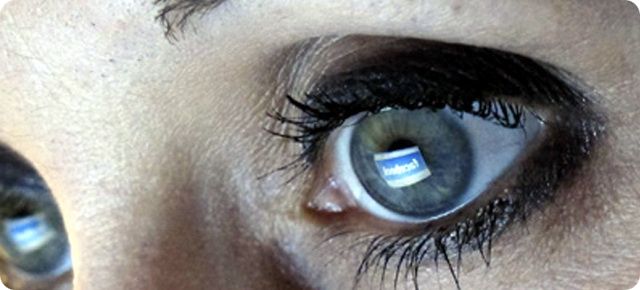
Together with John Steele, Paul Hansmeier and Paul Duffy, attorneys at Prenda Law (formerly known, among other things, as Steele Hansmeier, PLLC), he made life fairly miserable for thousands of potential defendants. Prenda sought out web users that allegedly downloaded porn illegally. The firm then filed copyright infringement lawsuits against the users, threatening a lawsuit that would rat the users out for downloading porn and also subject them to a substantial statutory penalty for copyright infringement. Prenda promised that it could make all of that go away for a few thousand dollars (you can read more about the scheme here). Reportedly, the firm raked in millions as a result.
Gibbs wasn’t actually a member of the firm; he was “Of Counsel” – first to Steele & Hansmeier and then to Prenda. “Of Counsel” is sort of the equivalent of an independent contractor in the legal field: you have an affiliation but you’re not a bona fide employee of the firm.
Prenda found itself in hot water last year when one of the defendants fought back. The fall out was fairly ugly and eventually, those involved found themselves at the mercy of United States District Judge Otis Wright, who not only issued sanctions and attorney’s fees against Prenda (including Gibbs) but affirmatively directed the matter to the Criminal Investigation Division (CI) of the Internal Revenue Service and the federal Attorney’s office. Pretty sobering stuff.
According to Gibbs, who admitted that he played a part in the *ahem* questionable legal practices, he eventually found out that Prenda was sending out letters with his signature that he hadn’t approved. He eventually quit the firm, sort of – only in California (you can read more about his testimony from Popehat) – but it was too little, too late.
While many – including Ken White at Popehat – seem to believe that Brett Gibbs was somewhat of “a dupe” in the case, the Judge didn’t give him a lot of leeway. Clearly, Judge Wright felt like Gibbs played a role of some significance in the whole thing. In his final order, Judge Wright found Gibbs, together with Steele, Hansmeier and Duffy as being jointly and severally liable for damages.
And that’s where we left things earlier this month.
Only there’s one little thing that wasn’t made very public about Gibbs when all of this happened: he’s dying. Literally. It turns out that he has brain cancer. His official diagnosis is stage-3 anaplastic astrocytoma. The typical mortality rate after this kind of diagnosis is 2-5 years. Gibbs was diagnosed in 2009 and has since undergone two brain surgeries, radiation and chemo.
Add one terminal illness to a poor career choice and you have poverty. In a document filed last week, Gibbs claims that he can’t pay any of the damages. Among his claims:
- My bank account has a balance of less than $500.
- I currently owe more than $50,000 on a loan I used to pay for my legal education.
- I also owe money to other creditors.
- I do not own any real estate or other assets that would allow me to pay the court’s fees and costs order or use as collateral for a bond in the required amount.
He also claims that he does not have full time employment and has “earned less than $5,000 total over the span of about two and one-half months.”
You can read the entire pleading at Techdirt.
Basically, he wants Judge Wright to let him out of order to pay damages. It’s a pretty grim pleading.
The response to the pleading isn’t overwhelmingly sympathetic. In fact, there’s more than a little schadenfreude (German for “delighting in others’ misfortune”) around the legal community right now. Karma is, they say, a bitch.
But let’s say that Judge Wright looks beyond all of the bad lawyering, threats and shakedown tactics and decides, out of perhaps a combination of sympathy and practicality, to let Gibbs out of his share of the damages. What result?
It’s a pretty interesting tax question. Generally, for federal income tax purposes, when you borrow money and it is later cancelled, discharged or forgiven, you have to report and pay tax on the amount which was cancelled, discharged or forgiven. So, in theory, the amount that is forgiven should be taxable to Gibbs (he might be able to claim an exception, more on that later). But there are two big problems here:
- How do you calculate the amount of the debt that is forgiven?
- What is the triggering event?
The debt in this case is subject to joint and several liability. That basically means that the plaintiff can collect the entire judgment from any one of the parties or from all of them. So, if Gibbs doesn’t have the dough to pay “his share”, the plaintiff can collect from the other defendants. This makes a discharge tricky because calculating the amount actually forgiven is nearly impossible: Gibbs could have been forced to pay all or none or anywhere in the middle of the amount due.
The IRS tends to handle debt relief of joint and several liabilities by requiring the creditor to issue a federal form 1099-C to each of the parties showing the entire amount of the canceled debt and letting the parties hash it out. But that tends to assume that the debt was forgiven, not just one of the debtors. If Judge Wright lets Gibbs off the hook, the debt remains for Steele, Hansmeier and Duffy. So how much is Gibbs’ “forgiven” portion? That’s hard to say.
And that ties into the second issue: what is the triggering event? Generally, before you can issue a form 1099-C, you have to identify a triggering event that indicates that the debt is not to be repaid (this is usually tied to when collection efforts cease). In this case, the triggering event would appear to be an Order, if Judge Wright chooses to issue one, releasing Gibbs from liability. But the entire amount of the debt would, in fact, remain and Steele, Hansmeier and Duffy would still be required to pay. So it would follow that no form 1099-C should be issued to any party and no taxable income would be reported by Gibbs since the debt could still be settled (assuming that Steele, Hansmeier and Duffy pay).
Confusing, huh?
It would almost follow that Gibbs would be better off staying in the pool of defendants and letting Steele, Hansmeier and Duffy pay up. Debt paid, no confusion (except among the parties, perhaps), no tax consequences.
But let’s say that Gibbs was actually relieved of his responsibility to pay the debt and let’s say further that a value (and a date) was somehow attached to that relief. Would Gibbs have to pay taxes on that amount? Based on his pleading, I’d say no.
There are a few exceptions to the rule that income due to cancellation of debt is taxable. They are:
- Bankruptcy
- Insolvency
- Certain farm debts
- Non-recourse loans
Three out of four don’t seem to apply here. But based on Gibbs’ sworn statement as to his income, assets and debts, he is likely to be deemed insolvent. You are considered insolvent if, before the cancellation, your total debts are more than the fair market value of your total assets. As a general rule, assets include everything you own even if they are pledged to others as collateral or are otherwise exempt from creditors. Unless there are factors we don’t know about (I’m not even dipping my toe into those mysterious Prenda beneficiary trusts… yet), it would appear that Gibbs is, in fact, insolvent for this purpose.
So perhaps, no harm, no foul. We’ll have to wait to see how Judge Wright rules to firm up the details. Again, it’s a fascinating issue from a tax perspective: who pays what and when and how?
In the meantime, there are a lot of good life – and tax – lessons to be learned here. Be careful who you do business with. Be accountable. Don’t assume the “good days” will last forever and plan accordingly. Keep good records. Don’t lie. And remember that what you put out there in the world often comes back to you, so be smart.
Author: Kelly Phillips Erb, Forbes Contributor






